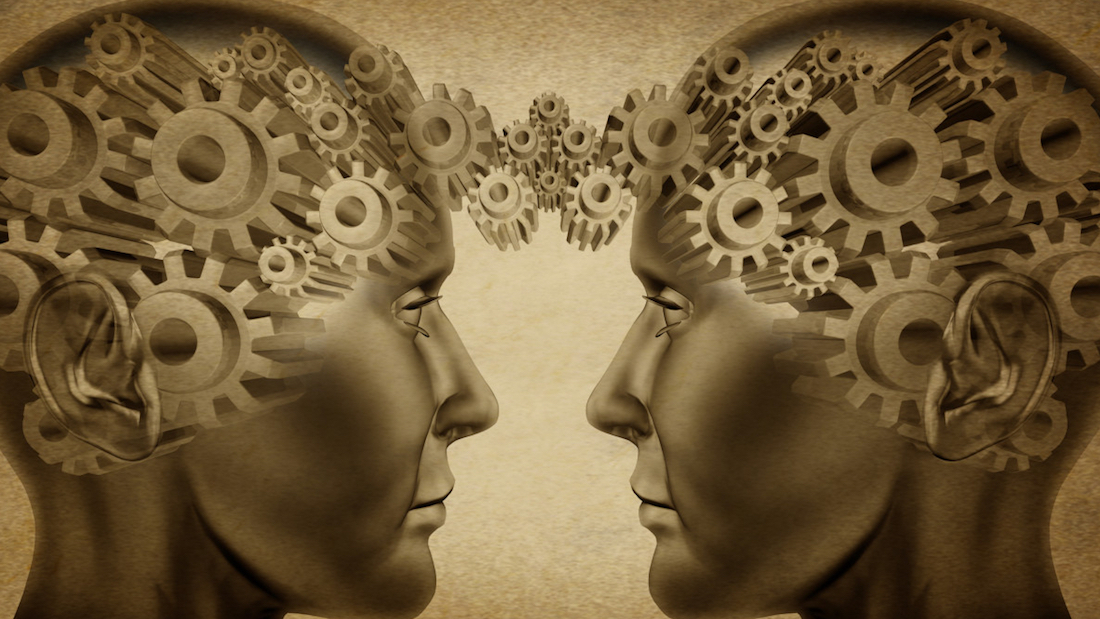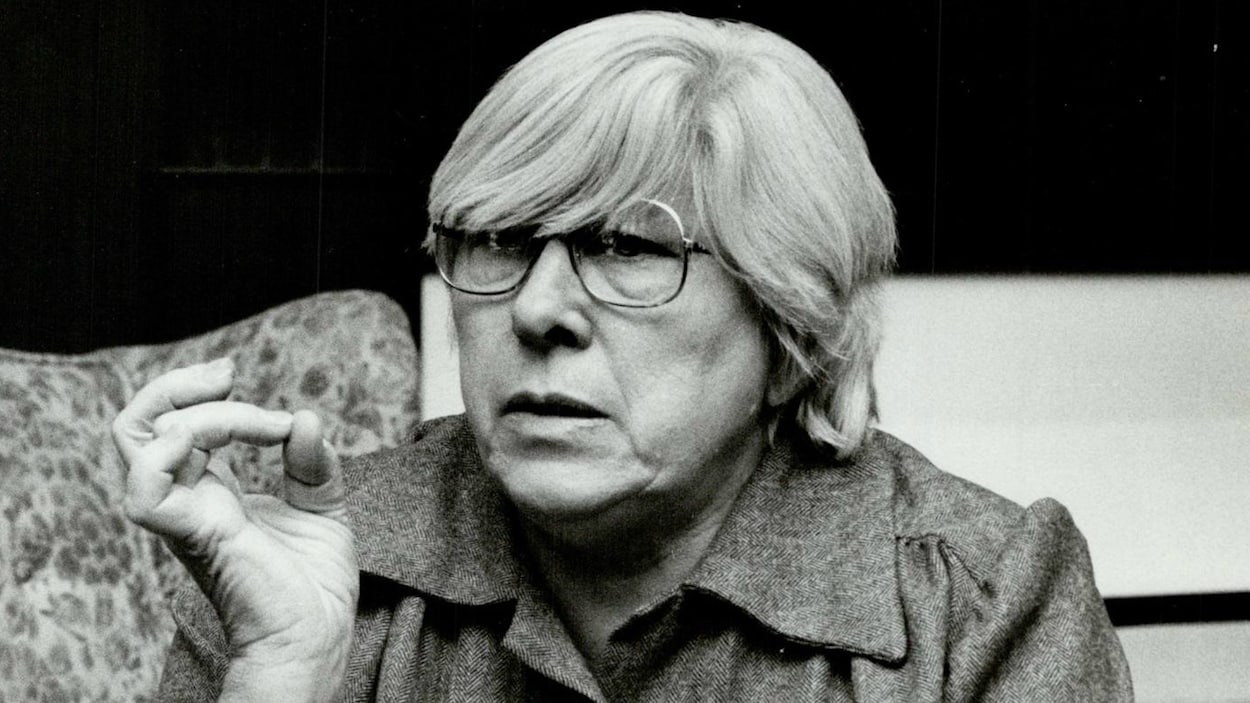In the introduction to his book, The Twilight of Atheism, Aleister McGrath referenced Winston Churchill’s 1943 speech at Harvard University where he predicted that the empires of the future will be empires of the mind. Ideologies would rule the future not individual nations. While Churchill was thinking of Nazism and Communism, his prediction appears in the headlines every day.
The most dangerous of all empires of the mind is atheism. Its many varieties range from a mild absence of belief in God or any supernatural beings to a decidedly more strident and rigorous rejection of any religious belief as being manipulative and enslaving. The word atheist first appeared in ancient Greece and identified, not to someone who disbelieved in God, but one who denied the state religion. Christians who refused to worship Caesar were called atheists, as well as traitors and usually martyred for their unpatriotic unbelief.
The French Revolution gave new meaning to the word. While many of its leaders hated the Catholic Church, they did so without any explicit denial of God. While Voltaire sought to eliminate the Church and the trappings of religious worship, he was a Deist, believing in a god who just did not want to get involved with his creatures. It was the Philosophes, the revolution’s fiery intellectuals who added the denial of God to the equation. They believed a rigorous application of the scientific method that could only lead to the denial of God.
Baron Paul-Henri-Dietrich d’Holbach, history’s first self-declared atheist, who vowed to eliminate the transcendent altogether, personified their thinking. He believed he was liberating mankind from the superstitious chains of an irrational faith in the supernatural. His thinking helped lead to a cult of reason that would disconnect science from its religious moorings.
Despite their best efforts, the revolution was not able to install atheism as the state religion during its 10-year reign. It was left to the godless communism of the 20th century to establish state atheism in Russia, China and Cuba.
According to McGrath, three atheistic giants emerged from the aftermath of the French Revolution. Their ideas, temperament, and thinking provided a beachhead for a modern iconoclasm that would undermine traditional religious belief for more than a century. Ludwig Feuerbach, Karl Marx, and Sigmund Freud served as an atheistic priesthood, who turned a daring revolutionary hypothesis into the established certainty of an age, placing Christianity constantly on the defensive. Their collective thinking, combined with the skepticism of Emmanuel Kant, gave rise to the modernism that would plague organized religion in the 20th and 21st centuries.
Feuerbach was born into a revolutionary cauldron in 1804. He studied at the University of Berlin where he was exposed to the ideas of G. W. F. Hegel. He felt the Church focused too much on an ethereal paradise and did little to better the living conditions on earth. Feuerbach wanted to create an intellectual earthquake that would so shake the pillars of faith in the West that the Church’s entire edifice would come tumbling down. He believed humanity had invented the idea of God as a consolation and distraction from the sorrows of the world. In his The Essence of Christianity, he set out to prove that humanity was oppressed by its own invention.
Karl Marx moved atheism into a new dimension. He believed that religion was the opiate of the people. He felt that the power structure used religion to drug the masses, preventing them from seeing the futility of their petty lives and recognizing those, who were oppressing them. As a weapon of the power structure, religion kept the poor down on the farm of misery and discontent. Marx reasoned that if society could remove the social conditions that caused a need for religion, it would soon disappear.
According to Freud religion arises through inner psychological pressures, which reflected the complex evolutionary history of the human race. Religious ideas were not deliberate deceptions but come from the human unconscious, the so-called id. To him the religious periods of history were the ignorant childhood days of the human race. Belief in a personal God was little more than an infantile delusion, arising from unconscious desires for protection and security. With modern atheism, the world is in its mature state. The more a society matures and becomes civilized, the less its need for religion. Sounds familiar!
Other residual affects of the revolution are still being felt today. Atheism is the fuel cell that has powered the modernism that permeates the culture war, which has lasted longer than all the wars in America history combined. This battle for minds and souls can easily be reduced to a never-ending struggle between the lingering beliefs of the French Revolution and the battle weary religious traditions of Western Civilization.
The warring sides in this ideological conflict can be best illustrated through the cities of Jerusalem and Athens. These historic cities represent the two forces—revelation and reason that gave life to and sustained the West for 500 years. For centuries under the guidance of the Church they worked in a comfortable harmony. With the rise of modernism in the 19th century, things radically changed. From that point Jerusalem and Athens or faith and reason, would never appear on the same ideological travelogue. Just as Churchill had predicted, these symbolic cities represent an urban warfare of the mind and frames the landscape of ideological debate in the 21st century.
Several years ago, conservative columnist Maggie Gallagher wrote about the Salk Institute for Biological Studies annual meeting in La Jolla, California, which stressed Athens’ bellicose posture toward Jerusalem. She pointed out that science had adopted an evangelical posture vying with religion for the title as teller of the greatest story ever told.
While posing as the strong men of Athens, the attending scientists, most of whom were atheists or agnostics, could not prevent their clay feet from peeping out from under their deep-seated need to suppress people and ideas that threaten their founding truths. As an aside this may explain why the scientific fallacy, man-made global warming or its new nomenclature, climate change, has captured the souls of so many scientists. Having identified carbon foot prints as the root cause, their inherent solution is to eliminate billions of people.
In a vain effort to undermine religious faith they showed pictures of deformed babies and wondered how a loving creator could be behind our existence. Others offered the vastness and beauty of the universe as much more glorious and awesome than anything offered by any scripture or God concept as proof of God’s non-existence. Their commitment to reason and logic failed to see the ironic contradictions in their position.
McGrath thinks that atheism is in its twilight because the future looks nothing like the utopia that they had promised. It has littered the highways of history with the death and destruction of millions of people. He offers as proof the fall of the Berlin Wall in 1989. He believes that political opportunism and cultural sensitivity have led to a state of serious religious revival.
McGrath has seriously miscalculated atheism’s premature demise. Yes, state communism has lost much of its power in the West but as a cultural force it still promotes its godless philosophy throughout the world. Years ago Professor Richard A. Shweder beckoned atheism’s revival in an op-ed piece, entitled Atheists Agonistes in the New York Times. He announced that the armies of unbelief are on the march because the religious right has provoked them. Unbelievers have found new strength in their historic genesis. Unlike the Bible theirs only dates back to the French Revolution when the world woke one morning from the slumber of the dark ages and were enlightened with the real truth.
Atheists have not forgotten that the Enlightenment provided the blueprint for a brave new world, devoid of superstition and ignorance. Despite’s McGrath’s death knell, they have become more adept in advancing their unbelief by wrapping it in the cloth of secular creeds, such as the separation of church and state and radical feminism.
While atheists remain the smallest minority of all iconoclastic zealots, their unbelief has attracted a liberal elite that evokes instant name recognition, including such godless luminaries as Kurt Vonnegut, Warren Buffet, Larry Flynt, George Soros, Woody Allen, and the late George Carlin, and Katherine Hepburn.
McGrath has also missed the new militancy among atheists. Though he had his private war with God, Charles Darwin was not an atheist. His theory of evolution was not designed to undo religious belief but many of its proponents used it to provide the missing link that had plagued atheists since the 18th century. Atheists could never explain away God’s creative sovereignty, until Darwin’s Origins of the Species found its way to the common bookshelves in 1859.
The late Christopher Hitchens, and Darwinist Richard Dawkins, author of the 2006 best seller, The God Delusion have kept the battle alive for years. One need only go to Twitter as I did once and questioned the veracity of atheism. The godless came at me with a fire and a scorn that I never anticipated. I found that it was very difficult to reason with people who are the epitome of the hard-of-heart.
Yes, atheism will always be here as former President Obama reminded us. He spoke of a practical atheism that was hidden behind the lip service many believers pay to religion and spirituality. Now we live in a country where atheism or at least the fruits of atheism are widely encouraged in a culture that celebrates death, which sees it as the cure all for our social problems.









Pope Leo XIII’s in 1884 heard a conversation between God and Satan where Satan boasted he could destroy man in 100 years if God gave him more power. God gave Satan that power. From 1884 to 1984 one could readily see that had much success. Two world wars, rise of communism in Soviet Union and China, the sexual revolution, feminism, abortion, priest scandal in the Catholic Church and gay marriage. Wars and abortion have prematurely killed more people in this 100 years than in all human history. Satan didn’t succeed in destroying man and God still reigns supreme. However, the damage was and still is severe.
In this 100th anniversary of Fatima, let’s all commit ourselves to steadfast gratitude and love for God and invite God to increase His power through His Holy Spirit over the next 100 years. What a glorious and wonderful period this would be if God says yes!